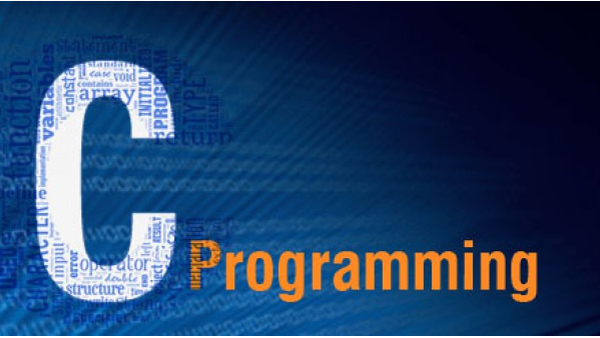Introduction to C Programming

About Course
Course Title: Master C Programming – From Beginner to Advanced
Course Overview:
This course is a step-by-step guide to mastering the C programming language. Whether you’re a complete beginner or looking to refresh your skills, this course will equip you with the knowledge and hands-on experience to write efficient, high-performance C programs. By the end of the course, you’ll be able to tackle real-world programming challenges and build a strong foundation for learning other programming languages.
Course Structure:
Module 1: Introduction to C Programming
-
Lesson 1: What is C Programming? – History, Importance, and Applications
-
Lesson 2: Setting Up Your Environment – Installing Compilers (GCC, Code::Blocks, etc.)
-
Lesson 3: Writing Your First C Program – “Hello, World!”
-
Lesson 4: Understanding the Structure of a C Program
-
Lesson 5: Basics of Compilation and Execution
Module 2: Fundamentals of C Programming
-
Lesson 6: Data Types, Variables, and Constants
-
Lesson 7: Input and Output in C (printf, scanf)
-
Lesson 8: Operators and Expressions (Arithmetic, Relational, Logical, etc.)
-
Lesson 9: Control Flow – if, else, and switch Statements
-
Lesson 10: Loops – for, while, and do-while
Module 3: Working with Functions
-
Lesson 11: Introduction to Functions – Definition and Syntax
-
Lesson 12: Function Arguments and Return Values
-
Lesson 13: Scope and Lifetime of Variables
-
Lesson 14: Recursion – Concept and Examples
-
Lesson 15: Standard Library Functions
Module 4: Arrays and Strings
-
Lesson 16: Introduction to Arrays – Declaration and Initialization
-
Lesson 17: Multidimensional Arrays
-
Lesson 18: Working with Strings – String Functions and Manipulations
-
Lesson 19: Arrays of Strings
-
Lesson 20: Practical Examples and Exercises
Module 5: Pointers and Memory Management
-
Lesson 21: Introduction to Pointers – Basics and Syntax
-
Lesson 22: Pointer Arithmetic
-
Lesson 23: Pointers and Arrays
-
Lesson 24: Dynamic Memory Allocation (malloc, calloc, realloc, free)
-
Lesson 25: Common Pointer Pitfalls and Best Practices
Module 6: Structures and Unions
-
Lesson 26: Introduction to Structures – Definition and Usage
-
Lesson 27: Nested Structures and Arrays of Structures
-
Lesson 28: Unions – Definition and Differences from Structures
-
Lesson 29: Typedef and Enumerations
-
Lesson 30: Practical Applications of Structures and Unions
Module 7: File Handling in C
-
Lesson 31: Introduction to File Handling – Opening and Closing Files
-
Lesson 32: Reading from and Writing to Files
-
Lesson 33: File Positioning (fseek, ftell, rewind)
-
Lesson 34: Error Handling in File Operations
-
Lesson 35: Practical File Handling Examples
Module 8: Advanced Topics in C
-
Lesson 36: Preprocessor Directives and Macros
-
Lesson 37: Command Line Arguments
-
Lesson 38: Bitwise Operations
-
Lesson 39: Function Pointers
-
Lesson 40: Introduction to Data Structures (Linked Lists, Stacks, Queues)
Module 9: Real-World Projects and Applications
-
Project 1: Building a Simple Calculator
-
Project 2: Creating a Student Record Management System
-
Project 3: Developing a File Encryption/Decryption Tool
-
Project 4: Implementing a Basic Game (e.g., Tic-Tac-Toe)
-
Project 5: Building a Custom Shell (Command Line Interpreter)
Module 10: Best Practices and Next Steps
-
Lesson 41: Debugging and Testing C Programs
-
Lesson 42: Writing Clean and Efficient Code
-
Lesson 43: Introduction to Version Control (Git Basics)
-
Lesson 44: Transitioning to Other Programming Languages (C++, Python, etc.)
-
Lesson 45: Resources for Further Learning
What You’ll Get:
-
Lifetime Access: Learn at your own pace with lifetime access to all course materials.
-
Hands-On Exercises: Practice with coding challenges and quizzes after each module.
-
Real-World Projects: Build portfolio-worthy projects to showcase your skills.
-
Certificate of Completion: Earn a certificate to validate your C programming expertise.
-
Community Support: Join a community of learners and get help from instructors and peers.
Who Is This Course For?
-
Beginners with no prior programming experience.
-
Students pursuing computer science or related fields.
-
Developers looking to strengthen their understanding of C.
-
Hobbyists interested in learning a powerful and versatile programming language.
Enroll Now and Start Your Journey to Mastering C Programming!
Student Ratings & Reviews
